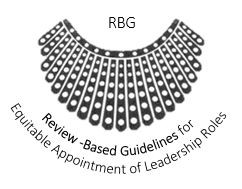EVI Tools
Creating + Sustaining a Culture of Equity, Vitality and Inclusion
All tools are living documents to be revised on an annual basis. Please refer back to this page for updates and new additions.
We are committed to information sharing and acknowledge this is an iterative process. Please take a look at the tool’s overview to set the stage before downloading. If you would like to adapt or adopt these tools for your own use, please cite us:
| “Adapted from Boston University Medical Group’s Office of Equity, Vitality, and Inclusion [full name of document + origin link]” |
We’d love to hear from you! Please send us any adaptations you make so we can build a collaborative community for learning and culture change. Contact us here.
Belonging Promising Practices + Resources ListBelonging consistently has been shown to be a key driver of occupational well-being. It is defined as how connected one feels to one’s community/communities and is a measure of psychological safety, being seen, included, valued, and empowered as a member of a team. In this tool, you will find examples of promising practices and other initiatives across BUMG Departments and Sections aimed at improving belonging. |
Sponsorship Tip SheetWomen in academic medicine have fewer experiences with high-quality sponsorship than men, which puts them at a disadvantage when trying to advance in their careers and perpetuates inequities in leadership.1 This tip sheet provides practical tips, tools, and scripts for leaders, faculty, and staff. 1 Levine, R.B., Ayyala, M.S., Skarupski, K.A. et al. “It’s a Little Different for Men”—Sponsorship and Gender in Academic Medicine: a Qualitative Study. J GEN INTERN MED 36, 1–8 (2021). https://doi.org/10.1007/s11606-020-05956-2 |
The GREAT Initiative Generating Respect Engagement Advocacy TeamworkThis toolkit serves as a guide and a resource for those who wish to promote engagement, empowerment and efficient collaboration inspired by the frontline members of healthcare teams, working alongside a traditional top-down leadership model. This tool was created by Margaret Lee MD, PhD, Melissa DiPetrillo MD, Alan Malabanan MD, Joshua Campbell PhD, Meera Muruganandan MD, Ansu Noronha MD, and Susannah Rowe, MD, MPH. |
Glossary for Culture TransformationLanguage reflects our values and shapes our beliefs, thoughts, and actions. The Glossary for Culture Transformation builds common understanding on issues of justice, equity, and belonging through shared language. The Glossary was developed by EVI in partnership with all levels of staff, employees, students, faculty, and leadership from Boston University Medical Group (BUMG), Boston Medical Center (BMC), Boston University Aram V. Chobanian & Edward Avedisian School of Medicine, and all schools on the Boston University Medical Campus (BUMC). Inclusive Language PracticesThis living tool provides practical recommendations + resources to incorporate the terms defined in the Glossary. This tool was created by the EVI Office in partnership with the Office of Faculty Development and Glossary development team.
|
Review Based Guidelines (RBG) for the Equitable Appointment of Leadership Roles
The RBG equips department/section leadership with the tools needed to:
|
Commitment to Operationalize Racial Equity (CORE)
The Commitment to Operationalize Racial Equity (CORE) is a tool for clinical departments and sections to integrate racial equity into decision-making. Using CORE, departments and sections establish Racial Equity teams, review data, and complete an assessment to identify their racial equity goals and actions. Click here for an overview of this initiative.
|
 Review-Based Guidelines (RBG) for the Equitable Appointment of Leadership Roles is a tool to improve equity in the selection of leadership positions by transforming workflows and establishing fair and transparent processes.
Review-Based Guidelines (RBG) for the Equitable Appointment of Leadership Roles is a tool to improve equity in the selection of leadership positions by transforming workflows and establishing fair and transparent processes. 